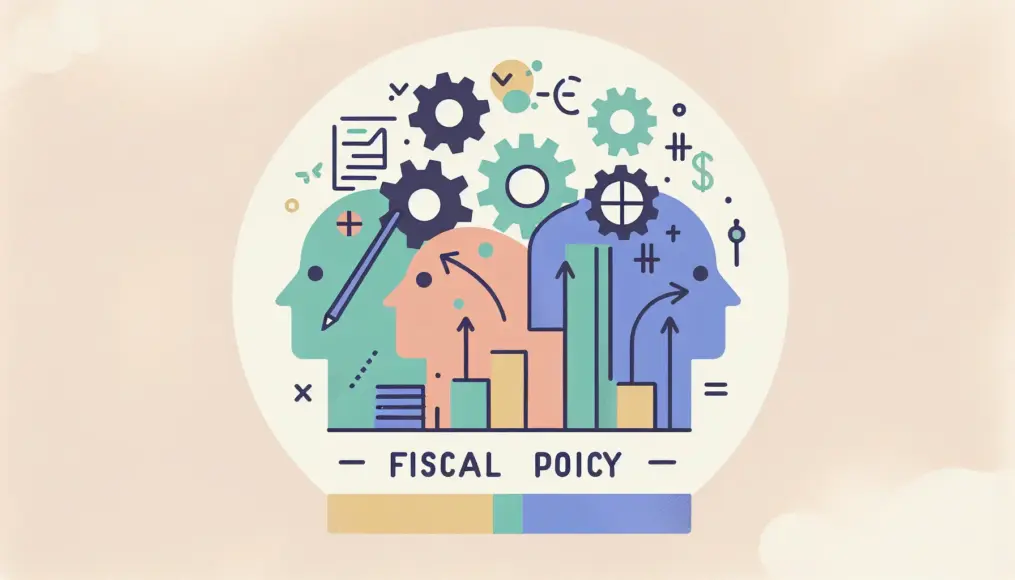When we hear the terms “finance” and “policy,” they might seem a bit daunting at first. However, these concepts are intricately woven into the fabric of our everyday lives. In essence, finance refers to how national and local governments collect and allocate funds, while policy outlines the plans for developing society and the economy based on that financial framework. By grasping the interplay between finance and policy, we can better appreciate their effects on our lives.
In this article, we will start by breaking down the fundamental concepts of finance and policy, weaving in historical perspectives along the way. We’ll also delve into current challenges and potential strategies for the future. Let’s approach this topic as something relatable and enjoyable to learn about.
- Clear explanations of the basic concepts of finance and policy
- Lessons from history on the successes and failures of fiscal policy
- Challenges and roles in current and future fiscal policy
Understanding the Basics of Finance and Policy
The terms “finance” and “policy” are often part of our daily conversations, and they significantly impact our lives and society as a whole. Finance refers to how governments and local authorities gather and allocate funds, while policy involves the plans and strategies developed based on that finance to advance our social and economic systems. In this section, we will explore what finance entails and examine the role and importance of policy. By grasping these concepts, we can pave the way for a better future.
What is Finance?
Finance is a system that outlines how national and local governments collect and spend their resources. Specifically, it involves generating revenue through taxes and social insurance contributions, which are then used to fund public services, infrastructure development, education, and healthcare. This financial mechanism underpins the well-being of citizens and keeps the economy functioning. The health of public finance is a crucial element for the development of any country or region, so it’s essential that we stay informed about its trends.
Finance is also closely linked to economic policy. For instance, when the economy is struggling, there’s often a call for the government to increase spending to stimulate growth. Conversely, during prosperous times, it becomes important to curb unnecessary expenditures and think about saving for the future. Thus, finance must be adaptable to the prevailing circumstances and shifts in the economic landscape.
- Finance illustrates how governments and local authorities manage their funds.
- Revenue from taxes and insurance funds public services.
- Finance needs to adapt flexibly to economic conditions.
The Role and Importance of Policy
Policy refers to the specific plans and actions taken by the government to address societal and economic issues. Various policies, such as those related to education and the environment, directly influence our daily lives. It’s crucial to understand that policies are implemented within the framework of finance; if the financial system is not sound, the envisioned policies cannot be realized.
Moreover, policies play a vital role in responding to changes in our lives and society. For example, as we face an aging population coupled with declining birth rates, it has become necessary to reevaluate education policies and pension systems. This requires a commitment to ensuring that future generations can thrive in a better environment. When policies are appropriately implemented, they enhance our quality of life and contribute to building a sustainable society.
- Policies are concrete actions taken by governments to solve problems.
- The health of public finance forms the foundation for policy implementation.
- Effective policies can improve quality of life and foster a sustainable society.
A Historical Perspective on the Evolution of Fiscal Policy
To truly understand the relationship between fiscal policy and governance, it’s essential to look back at historical examples. Particularly, Japan’s fiscal policies after World War II have had a profound impact on the nation’s reconstruction and economic growth. In this chapter, we’ll explore the successes and failures of post-war fiscal policies, uncovering the lessons they offer for the challenges we face today and our future. By understanding history, we can better appreciate its influence on our lives.
Fiscal Policy in Post-War Japan
In the aftermath of the war, Japan actively implemented fiscal policies aimed at rebuilding from the ashes. Notably, during the 1950s and 60s, the government promoted economic growth through public investments and industrial policies. Significant resources were allocated to infrastructure development and enhancing education, all in a bid to improve the living standards of the populace. This proactive fiscal approach became a major driving force behind Japan’s post-war economic recovery.
However, as economic growth accelerated, the risks to fiscal health also became apparent. Particularly after the collapse of the bubble economy, excessive borrowing and wasteful spending emerged as critical issues, leading to a significant expansion of the fiscal deficit. From these experiences, we learn the importance of balancing fiscal policies.
- Post-war Japan fostered economic growth through proactive fiscal policies
- Investments in public infrastructure and education improved living standards
- The expansion of fiscal deficits following the bubble’s collapse serves as a vital lesson
Lessons from Past Successes and Failures
Historically, fiscal policies contain both successful and unsuccessful examples. On the successful side, initiatives that created jobs through public works and revitalized local economies stand out. For instance, infrastructure projects like roads and railways not only improved transportation but also established a foundation to support local industries.
Conversely, there have been plenty of failures as well. Issues such as unsustainable borrowing and excessive support for specific industries have marred fiscal health. These missteps distorted market competition and, ultimately, had negative repercussions for the economy as a whole. It’s crucial to learn from these lessons to inform future fiscal policies.
- Success: Public works projects revitalizing local economies
- Infrastructure development as a foundation for transportation and industry
- Failure: Unsustainable borrowing and excessive industry support impacting the economy
The Intersection of Modern Finance and Policy
In today’s society, finance and policy are more interconnected than ever. As we face various challenges, it’s essential to understand how current fiscal policies are functioning and what impact these policies have on our lives. This chapter explores the challenges of contemporary fiscal policy and considers its social implications. By grasping the everyday realities we experience alongside the background of these policies, we hope to pave the way for a better future.
Challenges of Current Fiscal Policy
Japan’s current fiscal policy is grappling with serious issues such as a declining birthrate, an aging population, and economic stagnation. As a result, the country’s financial situation is becoming increasingly strained, raising concerns about the lack of funds necessary to maintain sustainable growth. A significant challenge lies in securing and appropriately distributing financial resources, particularly as social security costs, including pensions and healthcare, continue to rise.
Additionally, changes in the global economic landscape are also playing a critical role. With international competition intensifying, there is a pressing need to support domestic industries and explore new areas for growth. To tackle these challenges, flexible and innovative fiscal policies are essential. Attention is increasingly focused on how future policies will be shaped.
- Declining birthrate and economic stagnation as challenges for fiscal policy
- Rising social security costs complicating resource allocation
- Need for strategies to address global competition
Social Impacts of Policy
Policies have a direct impact on our daily lives. For instance, education and welfare policies significantly affect household living standards and the futures of our children. By creating a robust educational environment, we can foster the next generation’s talent, which in turn stimulates economic revitalization.
Moreover, environmental policy is a crucial element as well. To build a sustainable society, environmentally conscious policies are indispensable. Initiatives like promoting renewable energy and protecting the environment lay the groundwork for leaving a healthy planet for future generations. Thus, the choices and execution of policies become major factors that influence the quality of our society.

If you found this article interesting, you might also enjoy this piece: “Understanding the History and Future of Japan’s Fiscal Policy: Overcoming Challenges!”. It offers a detailed explanation of the evolution of Japan’s fiscal policy, contemporary challenges, and specific solutions, helping you gain a deeper understanding.
- Impact of education policy on families and children
- Environmental policy as a foundation for a sustainable society
- The importance of policy choices in shaping societal quality
Rethinking Future Fiscal Policies
As we look ahead, the importance of sustainability in fiscal policy is becoming increasingly clear. We are faced with significant challenges in our society, and the question arises: how can we maintain healthy finances while effectively implementing necessary policies? In this chapter, we will explore strategies for achieving sustainable finance and discuss the roles individuals and society as a whole should play. The choices we make in crafting forward-thinking policies will be critical to improving our lives.
Strategies for Sustainable Finance
To realize sustainable finance, the first step is to reassess unnecessary expenditures and utilize resources more efficiently. This includes reforms in public projects and social security systems. For instance, we need to explore ways of delivering public services at lower costs by leveraging new technologies.
Reforming income sources is equally crucial. By revisiting our tax system and identifying new revenue streams, we can build a more equitable and sustainable financial framework. Specifically, investing in environmental protection and revitalizing local economies will ensure responsible fiscal management for future generations.
- Reassessing unnecessary expenditures and using resources efficiently
- Securing equitable revenue sources through tax reform
- The importance of investing in environmental protection and local economic revitalization
The Role of Individuals and Society
Achieving sustainable finance requires significant contributions from both individuals and society as a whole. One way to get involved is through eco-friendly practices and community contributions in our daily lives. We must consider how our actions impact the future and engage actively in these efforts.
Collaboration and solidarity within our communities are also vital. When residents come together to tackle local issues and share ideas, it can lead to better policies. Each of us has the potential to contribute to the realization of a sustainable society by being conscious of our actions and taking initiative.
- The importance of eco-friendly practices and community contributions in daily life
- Collaboration and idea-sharing in local communities contribute to policy development
- Individual actions lead to the realization of a sustainable society
Conclusion
In this article, we’ve explored the intricate relationship between finance and policy. Finance is a vital component that underpins the economic foundation of our countries and communities, and its policies directly impact our daily lives. By reflecting on the evolution of fiscal policies since the post-war era and addressing contemporary challenges, we’ve also reaffirmed the importance of each individual’s role in shaping a sustainable future.
Looking ahead, future financial policies must focus on being both efficient and equitable. The collaboration between individuals and communities to contribute towards a sustainable society will be the key to creating a better future for all of us. Let’s continue to deepen our understanding of finance and policy and actively engage in the conversation.
- Finance is closely tied to our lives
- There is a demand for efficient and equitable financial policies
- Individuals and communities play a role in achieving a sustainable society
Are you ready to take action for a better future? We invite you to share your thoughts and feedback in the comments. Your voice can spark the next discussion!



Comment